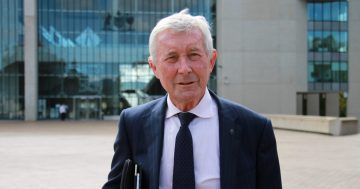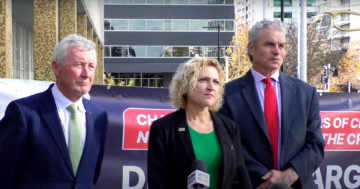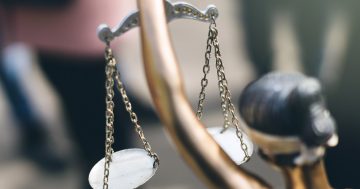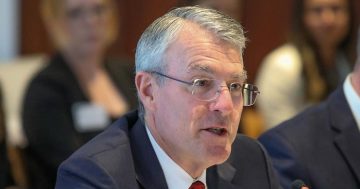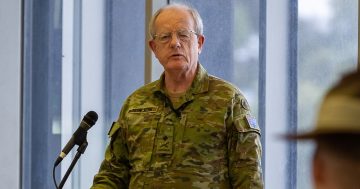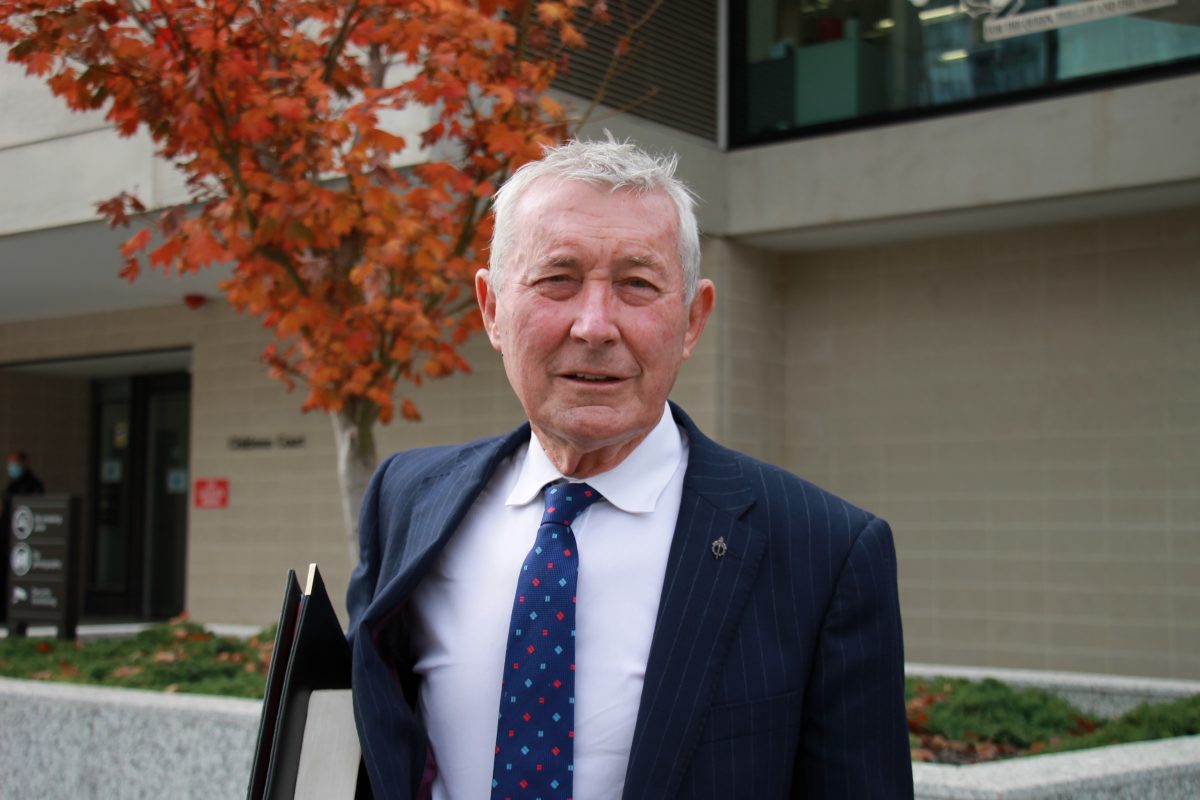
Bernard Collaery will face a trial in October. Photo: Albert McKnight.
A trial date has been set for the case against whistleblower Bernard Collaery, but Labor’s Mark Dreyfus said he would seek an early briefing on the prosecution if he were appointed attorney-general in an Albanese Government.
On Thursday (26 May), the case was listed for an ACT Supreme Court trial from 24 October 2022 with an estimated runtime of four to five weeks.
Phillip Boulten SC, appearing for Mr Collaery, told the court the date at the moment was against the “desires and wishes of the accused”, but Registrar Jayne Reece said the matter had been in court since 2019 and “it’s definitely one that needs to get heard”.
Prosecutor Christopher Tran said the four to five-week estimate for the trial “sounds sensible” for the time being and was likely to reduce rather than increase.
However, Mr Boulten said an appeal in the case would be aired in July and if that was upheld then the estimate would be “very much longer” and his team would seek to have the trial date vacated.
The setting of a date follows a change of federal government and the imminent appointment of a new attorney-general.
“If I am fortunate enough to be appointed attorney-general in the Albanese Labor government, I would seek an early briefing from my department on a number of matters relating to the prosecution of Mr Collaery,” Mark Dreyfus said in a statement.
Mr Dreyfus served as Shadow Attorney-General from 2013 and was Attorney-General when Labor was last in government.
In a radio interview with 6PR Mornings in early May, Mr Dreyfus described Mr Collaery as “a very eminent Australian lawyer”.
He said it was “extraordinary” that the Commonwealth spent more than $4 million and had more than 50 preliminary hearings yet no trial date had been set.
“That’s a very, very unusual thing,” he said.
“[I]t’s a concern to see such a huge expenditure of public money prosecuting an eminent Australian lawyer who’s in his 70s, about allegations of disclosure of events that themselves occurred more than 20 years ago [sic].
“And all prosecutions, whether they be national security prosecutions or any other kind of prosecutions, have to be in the public interest.”
Mr Collaery was the lawyer for Witness K, who blew the whistle about Australian intelligence services bugging the Timor-Leste cabinet room during 2004 discussions over the Timor gas treaty.
He is fighting five charges alleging he breached the Intelligence Services Act 2001 by providing information from ASIS to ABC journalists and that he conspired with his former client to give such information to the Timor-Leste Government.
Witness K was sentenced last year, after which documents were released that shed light on his life.












